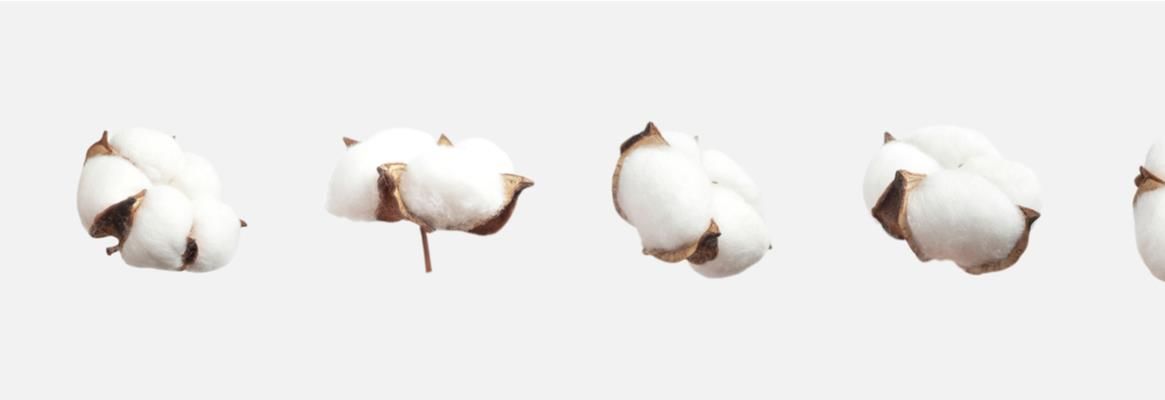
In October 2021, COP26 brought together many fashion brands and highlighted the need for sustainability within the industry. The event resulted in a new version of the United Nations Environment Program’s fashion charter, which now includes 130 signatures from companies like Gap Inc.
Evolving attitudes regarding sustainability and changing priorities among brands, retailers and consumers are creating demand for greater sustainability and transparency, starting at the field and continuing throughout the entire supply chain. In fact, a letter published during COP26 highlights the need for collective action in sustainability. The letter focused on the need to achieve net zero emissions by 2050, readdressing supply chains, and a shift in attitude from profit driven to well-being of the planet.

With the increased scrutiny on sustainability, brands and retailers want to ensure what they buy is what they get, with raw material sourcing more important today than ever before.
The US cotton industry’s existing commitment to leadership in more sustainable cotton growing practices has been clear over the past 35 years. It has made significant strides in reducing its environmental impact, decreasing water use, soil loss, greenhouse gas emissions and energy use while increasing soil carbon and land use. But the US cotton industry knew there was still work to be done to ensure that it contributed to the protection and preservation of the planet.
Launched in 2020, the U.S. Cotton Trust Protocol is a farm level, science-based programme that sets a new standard in more sustainably grown cotton. It brings verifiable goals and measurements to cotton production – driving improvements in land use, soil carbon, water management, soil loss, greenhouse gas emissions and energy efficiency.
The Trust Protocol allows US producers to showcase their sustainable practices and how they have been, and will continue to be, leaders in sustainability on a global scale.
At the same time, the programme was designed to meet the needs of brands and retailers in the fashion and textile industries, which are increasingly expected to show the sourcing data for their products.
“The Trust Protocol measures, evidences and verifies sustainability credentials,” said Dr. Gary Adams, president of the U.S. Cotton Trust Protocol. “With the Trust Protocol we are providing access to more sustainability grown cotton for brands and retailers, and science-based, data led assurances that their consumers can have confidence in – something that has been lacking in the industry to date.”
Trust Protocol members have access to aggregate data based on self-assessment questionnaires of participating growers in key sustainability metrics. This data-based approach, backed up by independent, third-party verification from Control Union Certifications North America, gives brands and retailers the critical assurances that the cotton fibre element of their supply chain is more sustainably grown.
However, the programme does not stop there. Recogniding the growing importance of increased supply chain visibility to brand and retailer members, the Trust Protocol has selected to collaborate with TextileGenesis™ in order to be the world’s first sustainable cotton fibre to offer its members article-level transparency across the supply chain.
Harnessing blockchain technology, the Protocol Consumption Management Solution (PCMS) begins at the gin where it records and verifies the movement of US cotton throughout the supply chain and provides a transparency map, including the names and locations of Trust Protocol mill and manufacturer members that were involved every step along the way, into the finished products that are shipped to brands and retailers. Currently in pilot, the PCMS provides brands and retailers the assurance and visibility that US cotton is included in their products.
Mills and manufacturers who join the Trust Protocol can also be identified as part of a fully transparent supply chain and selected by brands and retailers as they look to source US cotton fibre.
“For sustainability to be meaningful, we understand that the textile supply chain must demonstrate continuous improvement and transparency throughout the entire process – building trust from field to fabric,” said Adams.
In its first year the Trust Protocol has welcomed more than 560 brand, retailer, mill and manufacturer members since its launch in 2020. This includes J.Crew, Madewell, Levi Strauss & Co. and, Gap Inc. as well as global apparel manufacturer Gildan. The Trust Protocol has also welcomed UK retailers Tesco, Byford and Next Plc.
To learn more about the U.S. Cotton Trust Protocol visit TrustUSCotton.org







Comments